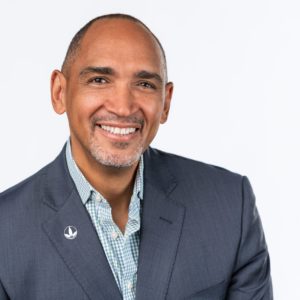Leading Through The Pandemic Was A Lot Like Running A Triathlon


 A few years ago, Herbalife Nutrition decided it would host a triathlon, giving athletes of all abilities the chance to perform at the highest level, while showcasing our company’s belief that nutrition and healthy choices can make a tremendous difference in a person’s life. The last thing any of us thought when we committed to the triathlon was that all of us gathered on that spectacular Los Angeles day in May 2019 would, along with the rest of the world, be soon part of the ultimate endurance test—surviving a global pandemic.
A few years ago, Herbalife Nutrition decided it would host a triathlon, giving athletes of all abilities the chance to perform at the highest level, while showcasing our company’s belief that nutrition and healthy choices can make a tremendous difference in a person’s life. The last thing any of us thought when we committed to the triathlon was that all of us gathered on that spectacular Los Angeles day in May 2019 would, along with the rest of the world, be soon part of the ultimate endurance test—surviving a global pandemic.
We try our best to educate the public on staying safe and how to mitigate the spread. At the same time, the medical community treats those who have become infected, and researchers and doctors work towards a vaccination. And, of course, there is the desire to return to normalcy, to figure out how we can resume at least part of our daily routine.
Battling a global pandemic is a long-term proposition. A triathlon, which tests competitors in the water, on bike and on foot, offers lessons on long-term leadership.
Starting strong is essential to leading through any crisis. You must keep people informed and provide support to those you work with—and specifically for me, as CEO, to our team members, partners and customers.
As a trained and practicing pediatrician who transitioned into leadership positions with the U.S. Public Health Services Commissioned Corps and the U.S. Department of Health and Human Services, I learned that leaders need to share clear goals with their stakeholders. What is your vision? Without stated goals, your key audiences may feel that there is no game plan to manage the situation.
At Herbalife Nutrition, when Covid hit, we immediately needed to make sure our employees could safely perform their jobs and that they had either the necessary resources to work in an office or factory or the tools to set up a home office. We instantly put into place health protocols that included increased scheduled cleanings and modified socially-distanced workstations. As an essential service, we needed to make sure that our food and nutrition products would continue to reach our customers who depend on them for their health and well-being. We worked tirelessly to safeguard our supply chain, quickly pivoted where needed and continued to operate to meet demand.
Keep Pedaling
Continuing to communicate during a crisis is crucial. Clearly explaining the plan and keeping people informed can be a leader’s biggest ally. Saying nothing can be devastating, stoking fears and sparking rumors to fill the information void. This applies both to the general public and a business organization.
It is natural to spend a lot of time with your senior leadership team to determine next steps. As a leader, you want to confirm buy-in at the top with everyone knowing their roles. But, while leadership teams are grappling with the path forward, your most valuable audience—your employees—need to hear from you immediately. It’s not necessary to have every answer, but reach out to your team. Health and safety are the top priority, and that includes mental health. Leaders should stress that they understand that everyone is feeling the pain and will be supported.
When emotions are running high, it is important for the CEO to maintain composure in communication. Everyone looks to the person at the top to set the tone, especially in a challenging situation, and my confidence level has a direct impact.
And once a plan is created, key audiences must receive frequent and transparent communication.
One Foot in Front of the Other
A strong leader focuses on understanding and serving the needs of others. During a crisis, it is imperative that the person in charge never loses sight of how the organization is serving its audiences and never takes advantage of the crisis. Leaders need to think not just about producing goods, but making sure that workers are safe, and protocols are developed and shared.
Our role in helping independent distributors through the current crisis was perhaps even more complicated than our role helping employees. Most of them work alone or on small teams. Because they are not employees, our leadership levers are limited to influence, trust, inspiration, mentoring and guidance. We needed to give them a sense of confidence and direction to assure growth in the business.
From the outset, we advised the independent distributors to recognize that their communities relied upon delivery of the same healthy nutrition products as they had before the crisis. We encouraged them to innovate and find temporary solutions to the disruptions and dislocations, while also stepping up engagement in their communities. We also assured them they were not alone.
As it’s turned out, our distributors have been our single biggest source of business ideas and innovation during the pandemic. Much of what they taught us will be continued long after this crisis has passed.
Crossing the Finish Line—and Giving Back
Once the challenge has been met, you can continue to make an impact by giving back. Crises test all of us—we find out how strong and how resourceful we are, and we are reminded to think about those most in need.
The pandemic has highlighted and exacerbated the food insecurity challenges that plague the world. Feeding America reports that approximately 54 million people (1 in 6 people) experienced food insecurity in 2020, including 18 million children (1 in 4 children). Leaders have a responsibility not only to support their employees and customers, but also to help aid underserved populations around the world.
As a global nutrition company providing food, health, and wellness products to millions of people in 94 countries around the world, we are in a unique position to help our communities during this time. In 2019, we launched Nutrition for Zero Hunger, a global initiative focused on providing healthy nutrition and nutrition education to communities worldwide. In April 2020, we announced that $333,000 of the $1 million pledged to World Food Program USA’s Emergency Response Fund would aid coronavirus pandemic relief efforts. These funds, gifted through our Nutrition for Zero Hunger initiative in concert with the Herbalife Nutrition Foundation, will support the United Nations World Food Programme (WFP) efforts in responding to supply chain and other logistics issues related to the virus.
This kind of giving is bigger than any one person. It’s organizational
Our global community will survive the pandemic led by people and organizations which provide hope, direction and most of all, a path forward. This pandemic is the ultimate test of endurance. Together, we will finish strong.

Chief Executive Group exists to improve the performance of U.S. CEOs, senior executives and public-company directors, helping you grow your companies, build your communities and strengthen society. Learn more at chiefexecutivegroup.com.
0

1:00 - 5:00 pm
Over 70% of Executives Surveyed Agree: Many Strategic Planning Efforts Lack Systematic Approach Tips for Enhancing Your Strategic Planning Process
Executives expressed frustration with their current strategic planning process. Issues include:
Steve Rutan and Denise Harrison have put together an afternoon workshop that will provide the tools you need to address these concerns. They have worked with hundreds of executives to develop a systematic approach that will enable your team to make better decisions during strategic planning. Steve and Denise will walk you through exercises for prioritizing your lists and steps that will reset and reinvigorate your process. This will be a hands-on workshop that will enable you to think about your business as you use the tools that are being presented. If you are ready for a Strategic Planning tune-up, select this workshop in your registration form. The additional fee of $695 will be added to your total.

2:00 - 5:00 pm
Female leaders face the same issues all leaders do, but they often face additional challenges too. In this peer session, we will facilitate a discussion of best practices and how to overcome common barriers to help women leaders be more effective within and outside their organizations.
Limited space available.

10:30 - 5:00 pm
General’s Retreat at Hermitage Golf Course
Sponsored by UBS
General’s Retreat, built in 1986 with architect Gary Roger Baird, has been voted the “Best Golf Course in Nashville” and is a “must play” when visiting the Nashville, Tennessee area. With the beautiful setting along the Cumberland River, golfers of all capabilities will thoroughly enjoy the golf, scenery and hospitality.
The golf outing fee includes transportation to and from the hotel, greens/cart fees, use of practice facilities, and boxed lunch. The bus will leave the hotel at 10:30 am for a noon shotgun start and return to the hotel after the cocktail reception following the completion of the round.